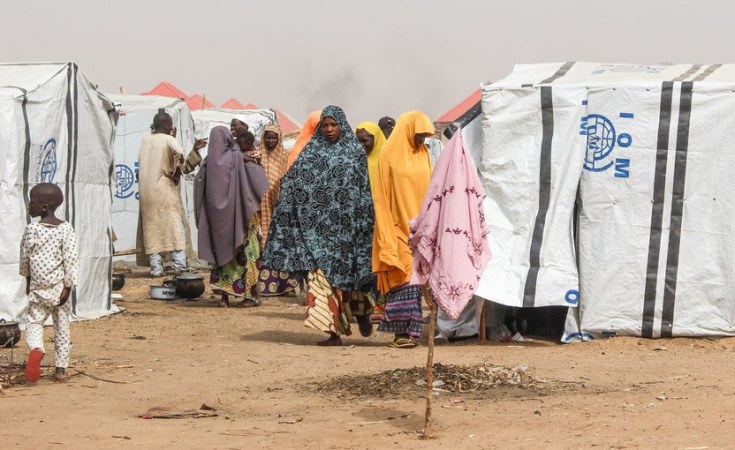With African guidance, Europe's controversial Global Gateway plan can complement existing development projects.
The European Union (EU) will, on 6 February, finalise the list of priority projects under its Global Gateway initiative in 2023. The plan to mobilise investments that build sustainable links worldwide was unveiled in December 2021. Half of the €300 billion global target is earmarked for soft and hard infrastructure projects in Africa between 2021 and 2027.
The Global Gateway is one of the latest frontiers in the geopolitical struggle for influence in Africa. It is regarded as a direct response to China's Belt and Road Initiative, an infrastructure financing programme considered to have improved the perception of China in Africa. It's also comparable to the United States' Build Back Better World plan for infrastructure financing.
EU officials insist that their approach differs from China by using private sector investment, not government-backed loans. Global Gateway projects must however align with 'the EU's democratic values and international norms and standards' - raising questions about the applicability of these values to external partners.
Some also argue that Global Gateway funding targets are too low. Compared to its €300 billion global goal between 2021 and 2027, the Belt and Road Initiative would have committed an estimated US$1 trillion between 2017 and 2027. And a significant portion of Global Gateway funds will likely not be 'new money' but simply the coordination of member states' existing commitments through its Team Europe approach.
The Global Gateway is one of the latest frontiers in the geopolitical struggle for influence in Africa
In creating the Global Gateway, the EU seeks to join the United States in presenting a strong Western response to China's growing global influence. The increasingly contentious issue of migration among EU member states could also be a factor. Polarising stances on the treatment of irregular migrants and asylum seekers are already causing deep internal rifts.
Africa's leaders could however shape the plan to benefit their populations and eventually achieve equal Africa-Europe partnerships. Economic recovery in the Lake Chad Basin is among several projects that could benefit. The region has been ravaged by Boko Haram violence for over a decade, and the Global Gateway could help resolve the underlying causes of the crisis.
Since 2018, the Lake Chad Basin Commission has led recovery efforts through its Regional Strategy for Stabilization, Recovery and Resilience of the Boko Haram-affected Areas. The commission and others involved in rebuilding the region can boost peace and development by identifying and promoting Global Gateway investment projects.
The EU already supports Lake Chad Basin recovery by funding humanitarian and development organisations. It is a strong partner of the regional strategy and committed €5 million to the Regional Stabilization Facility between 2019 and 2022. Progress is reflected in the building and reconstructing of infrastructure such as roads, markets, schools, hospitals and government offices. Training centres have also been established for skills acquisition.
Africa's leaders could shape the plan in the interest of achieving equal Africa-Europe partnerships
Socio-economic recovery and sustainable development are key to the stabilisation strategy. With its focus on humanitarian and development funding, existing EU support is constrained in its ability to promote economic growth. The selection and management of aid projects don't compare to starting business ventures, and addressing long-term economic challenges without creating dependencies is difficult.
Private sector-led investment projects are critical for sustainable development. When carefully managed, they are better suited for creating jobs, growing livelihoods and driving structural change. This means that Global Gateway projects in the Lake Chad Basin can complement existing development initiatives.
Attracting investment into regions suffering from protracted conflict is a tall order, but the Global Gateway hopes to incentivise the European private sector to invest in apparent high-risk areas. The plan also focuses on security - and the combination of these elements presents a compelling case for the Lake Chad Basin. The intersection between climate change and regional security makes local projects a great fit, given the focus on climate resilience projects.
Lake Chad Basin's growing youth population would also benefit from digital connectivity initiatives, enabling micro-entrepreneurship through the growing gig economy in countries such as Nigeria. Projects focused on strengthening agricultural output and supply chains can help revive the Lake Chad Basin's agro-economy and support food security.
Global Gateway projects in the Lake Chad Basin can complement existing development projects
The EU must prioritise input from its external partners to ensure that mutually beneficial projects are selected. The European Investment Bank should work even more closely with counterparts such as the African Development Bank in choosing and implementing interventions.
African leaders must rise to the challenge and be proactive. A series of meetings could be convened between investment promotion agencies in Lake Chad Basin and Global Gateway actors to map out opportunities that benefit both communities and investors.
Teniola Tayo, Consultant, ISS


